Advertising Requirements outlined in the Package Travel Regulations (PTR) stipulate that travel organisers must deliver precise, clear, and thorough information when promoting their travel packages. These stipulations are designed to guarantee that customers are presented with truthful information regarding the services available, thereby fostering transparency and safeguarding consumers against deceptive advertising practices. For travel companies, compliance with these advertising standards is crucial for establishing customer trust and mitigating the risk of regulatory sanctions.
Role of Advertising Requirements in the Travel Industry
Advertising requirements are essential for guaranteeing that promotional materials such as brochures, websites, social media, and other marketing platforms truthfully represent the travel experiences available. Every detail, from destination descriptions and accommodation options to pricing and promotional offers, must align with the actual services delivered. For instance, if a travel package claims to include "beachfront accommodation," it is imperative that the lodging provides direct access to the beach as suggested. This level of accuracy enables customers to make well-informed choices and mitigates the risk of dissatisfaction, thereby cultivating a reliable relationship between travel providers and their customers.
Key Components of Advertising Requirements
Advertising requirements within the PTR emphasise several critical elements to guarantee both clarity and precision:
Comprehensive and Accurate Descriptions
The descriptions provided for destinations, activities, accommodations, and other components of the package must be truthful and correspond to what will actually be delivered. This encompasses detailing specifics such as room types, views, and amenities included in the package.
Pricing Clarity
All advertised prices must represent the total cost of the package, inclusive of taxes, surcharges, and fees. Any additional costs, such as optional excursions or baggage fees, must be explicitly stated.
Promotional Language and Imagery
Travel organisers are required to refrain from using exaggerated or misleading language and imagery in their promotional materials. For example, terms like “luxury suite” or “all-inclusive” should accurately reflect the actual offerings without inflating the level of service or facilities.
Terms and Conditions
Any stipulations related to the package, including booking restrictions, seasonal availability, or minimum stay requirements, should be clearly articulated in the advertisement. This transparency aids customers in understanding the terms from the outset, thereby preventing confusion during the booking process.
Environmental and Safety Information
Relevant environmental or safety information, such as health advisories or seasonal weather patterns, should be included to accurately inform customers of potential impacts on their travel plans.
Challenges with Advertising Requirements in Travel
Travel companies often encounter difficulties in interpreting advertising regulations, especially when promoting packages for destinations or services that are subject to rapid changes. Factors such as environmental conditions, seasonal tourism limitations, or unforeseen maintenance issues can impact the reliability of certain advertised features. Consequently, it is essential for travel companies to frequently revise their promotional content and include disclaimers when appropriate.
Additionally, there exists a challenge in striking a balance between engaging language and factual accuracy. Travel organisers strive to present enticing offers; however, they must refrain from making exaggerated claims or employing vague terminology that may mislead potential customers. Ensuring compliance with PTR standards may necessitate the allocation of extra resources, as teams are required to consistently review, update, and authorise marketing materials to maintain adherence.
Importance of Compliance with Advertising Requirements
Adhering to the advertising standards set forth by the Package Travel Regulations is crucial for travel companies in establishing their credibility and fostering customer trust. By delivering clear and precise information, these companies empower customers to make informed choices regarding their bookings, which in turn enhances customer satisfaction and reduces the likelihood of disputes. Furthermore, transparency in advertising bolsters the reputation of travel providers, as customers are more inclined to engage with companies that present their offerings honestly.
Moreover, compliance with these advertising standards is vital for avoiding regulatory repercussions. Failure to meet advertising requirements may lead to fines or legal ramifications, particularly if customers perceive that they have been misled by inaccurate or insufficient information. By ensuring that all promotional materials accurately reflect the services provided, travel companies affirm their dedication to ethical practices and responsible advertising, thereby contributing to a more robust and transparent travel industry.









.svg)





